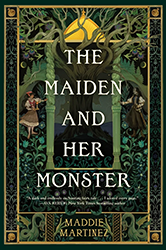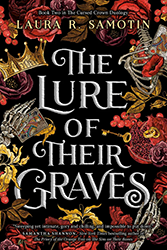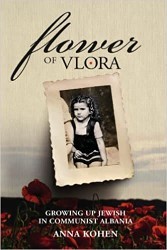Temim Fruchter’s compelling debut, City of Laughter, follows four generations of women who are haunted by seemingly intractable secrets and superstitions. In the present day, grad student Shiva is struggling with the loss of her father and her mother’s inability to communicate. She copes by throwing herself into a research trip to Warsaw, searching for both her family’s ghosts and the ghost of Yiddish folklorist S. Ansky. Her mother, Hannah, is prone to silences that trace back to her own mother, Syl, who placed obsessive superstitious defenses against a nebulous supernatural threat — a threat that itself originates from the haunted birth of Shiva’s great-grandmother, Mira.
The women’s ancestral shtetl of Ropshitz is known as the “City of Laughter,” the hometown of a famous badchan (wedding jester). Yet laughter signifies something more complicated than joy; it suggests an emotion that can’t be expressed in words, a sometimes dangerous eruption that challenges the boundaries of what people — women in particular — are permitted to feel and confess. Laughter is uncontrollable; it pushes boundaries; it upsets societal expectations.
Shiva and Hannah’s parallel journeys of self-discovery are part Chelm story, part possession narrative, and full of juxtapositions worthy of any Talmudic argument. The dybbuk motif, borrowed from An-sky’s groundbreaking play, reflects the theme of doubling that appears throughout the narrative: Der Dibek (The Dybbuk) is the story of a wedding prevented by a funeral, one that’s haunted by the specter of what might be an unspoken queer desire. The secrets and silences that haunt Shiva, Hannah, Syl, and Mira blur the lines between life and death — and they do so most clearly when Syl’s life ends just as her granddaughter’s begins, leaving them almost, but not quite, close enough to touch.
City of Laughter suggests in its quiet, poetic way that a wedding might also be a kind of funeral: the funeral of an unspoken, unspeakable truth. What is unspoken sometimes speaks loudest. It breaks out in wild laughter in the darkness, in the joyous shrieking of a wild beast. In Shiva’s family, queerness, the desire of women for other women, is both a dybbuk’s haunting weight and an angel’s undelivered message, carried through the generations. “Everything has been here for longer than you can imagine,” the narrator remarks, in the midst of a wistful glimpse of a past encounter, full of queer potential not yet realized. And what has been here is worth searching for, uncovering, and speaking about. City of Laughter brings the reader along on the search — sometimes meandering, sometimes rushing ahead on the uncertain timeline of self-realization — to an ultimately satisfying resolution.
Sacha Lamb (@sachalamb.author on Instagram) explores gender, sexuality, and disability through historical fiction centering Jewish mythology and folklore. Their debut, When the Angels Left the Old Country, is a Printz Honor book and Stonewall and Sydney Taylor award winner. Their second novel, The Forbidden Book, is a Sydney Taylor Honor book and a Boston Globe Best of the Year pick for 2024. A 2018 Lambda Literary fellow, Sacha has a degree in Library and Information Science from Simmons University. They live in New England with a miniature dachshund mix named Anzu Bean.




